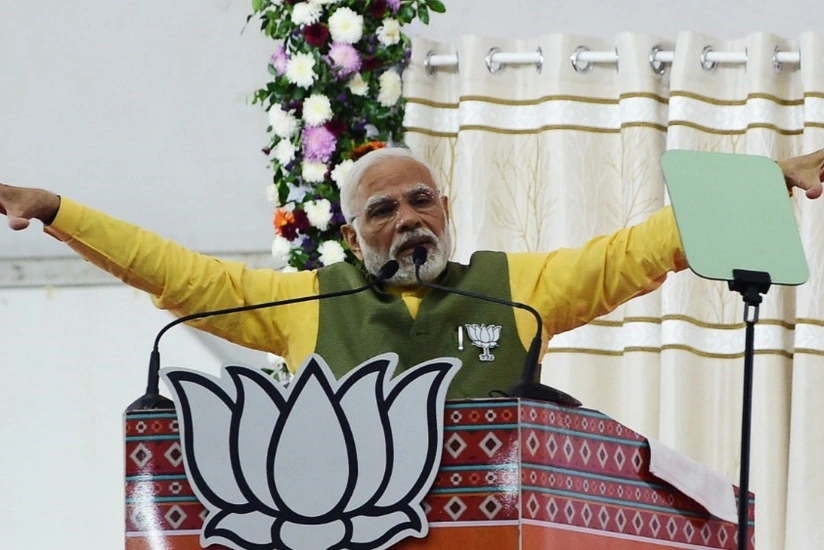Democracy under threat: Modi's reign and erosion of civil liberties
- 16 May, 2024
- 07:17

The largest voting procedure in the world is off to the races. 969 million voters, or over 10% of the world's population, are called to the polls between Friday April 19 and Saturday June 1, to elect their 543 deputies to the Lok Sabha, the lower house of Parliament, which holds the most power and from which the name of the next prime minister will emerge.
In this massive voting exercise, Narendra Modi has set himself an ambitious target: to win over 400 seats with his allies to achieve the two-thirds majority required to amend the Constitution. In 2019, the Opposition won 91 seats against 303 for the Bharatiya Janata Party (Indian People's Party, BJP) - Modi's formation - and 352 with his allies.
After almost ten years in power, Modi's popularity remains intact, fuelled by a media that is largely sympathetic to him, focusing all attention and favorising the current Prime Minister and ignoring or attacking his opponents.
“You may have heard of the expression 'match fixing', where players are brought in, captains bribed, referees chosen and matches won in advance. These elections are like a fixed match", Congress leader Rahul Gandhi told his numerous supporters gathered in the north of the capital. For him, there was no doubt that the man who had "chosen the referee" was none other than Narendra Modi. "His slogan, '400 plus seats' [more than 400 seats], is unachievable without rigging the electronic machines, putting pressure on the media and social networks. It's not just Modi, but three or four of India's biggest billionaires who are also involved in this rigged match."
To weaken the coalition of his rivals, the government of Narendra Modi dealt a terrible blow to the opposition, right from the start, by having two of its leaders arrested: Arvind Kejriwal, the chief minister of Delhi, and Hemant Soren, the former chief minister of Jharkhand (North-East), for alleged corruption cases.
The Indian government hopes to create suspicion in voters' minds about the fairness and innocence of these elected officials, at a time when it is itself caught up in the scandal of anonymous financing of political parties set up in 2017. It has also had Congress's main bank accounts frozen as part of a tax dispute.
Nevertheless, these tactic had a rallying effect on the opposition. On March 31, during the rally in New Delhi, participants were displaying the portrait of Delhi's head of government behind the bars of a prison, an image symbolic of an increasingly authoritarian regime that does not hesitate to imprison its political opponents, intellectuals, activists and sometimes even regular demonstrators.
In addition to arresting the two leaders of the opposition, Modi and his right-hand man, Interior Minister Amit Shah, engaged in unprecedented undermining before the polls, "poaching" elected opposition members. According to an investigation by the news website The Wire, a dozen members of opposition parties who had been prosecuted for corruption in recent months had their cases quashed after agreeing to join the ranks of the BJP.
One of the most serious matters at hand for all the parties in this election is the religion. The studies made by the independent analysts show that religious minorities - Muslims, Christians, Sikhs - are extremely worried. For them the matter is all too important as they are the first victims of the ethnicization of the regime led by Narendra Modi over the last ten years.
In the past years BJP has dramatically escalated its rhetoric in regards to the minorities and created a paradigm in which the needs of the Hindu population is perceived as the priority. The creation of the Ram temple in Ayodhya (Uttar Pradesh) tops the list of the government's favorite achievements in The Hindu's survey. While the government perceives the creation of the temple as the victory, the opposing citizens see it as a continuation of the trend where Narendra Modi creates a systematic opression of the interests of the minorities in favor of the Hindous.
While the results of the voting scrutiny will be known on 4 of July, the current government is certain in its victory to the point where the leader of the current Government has already asked his senior officials to draw a roadmap for the first months ahead of the victory. At this point it is quite obvious that Narendra Modi will win, the real question where that will lead India…
Adil Melikov
